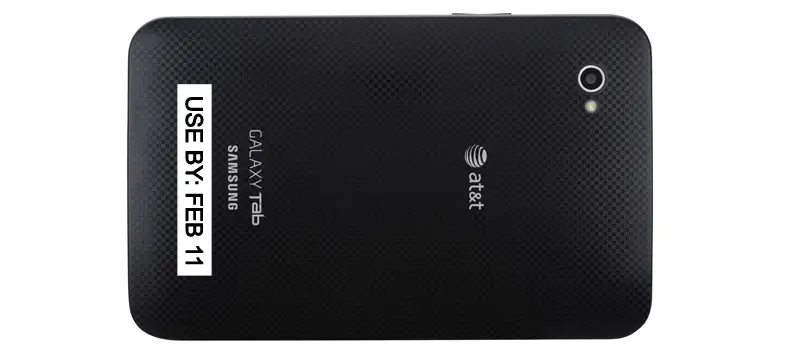Are Android devices too short-lived?

New products are announced all the time and for the most part it’s a good thing- but if you’re happy with what you have, there often isn’t any reason to upgrade. I still use my iPhone 3GS and can’t say that I miss the features of the iPhone 4. Apple is generally pretty good at keeping older devices updated, so you can use your devices for more than the one year that Apple sells them. Android on the other hand, is another matter….
OS numbering aside, iOS and Android gets features at more or less the same pace. Sometimes it’s just a few fixes and a few new features, sometimes it’s game changing like Android 3.0 and iOS 4.2 that are both the tablet milestones for their respective OSes. However, with Android there’s always a question regarding whether an older device will actually get the update. Heck, you can’t even expect new devices to run the latest version of the OS- Archos still releases brand new devices with Android 1.6, Viewsonic does the same, Chinese OEM devices might still run 1.5 and even if you buy an Android smartphone new on contract you might be stuck with 2.1 or so- like the San Francisco (name of the phone). Sometimes these are updated eventually, sometimes not.
Even if they are updated, you can’t expect to still get software updates for your phone in a couple of years. The latest version of iOS still works on the iPhone 3G (hardware limitations aside), but the first Android phone, the G1, never made it past Android 1.6 even though that model is actually a few months newer than the iPhone 3G. Even more recent, top of the line models such as the Motorola Droid from late 2009 is already lagging behind; Android 2.2 was released in May 2010, but the Droid didn’t get it until August. The Milestone, which is the european version of the same phone, didn’t get it until a few days ago- half a year later! Android 2.3 is already out so while they’re still rolling out updates to an older OS version they’re already a month behind on the next.
Part of the problem is the way Android works. It’s a framework as much as a complete OS package and many manufacturers tinker with it themselves before rolling it out. That delays everything and also makes the job of updating older devices a more costly process. Apple on the other hand, runs a “one size fits all” deal because they really only have three devices; iPad, iPhone, and iPod touch. They share some of the same hardware and features so you don’t have a couple of dozen different manufacturers each having to tailer the OS to each device.
You can flash your own ROMs and get the new OS versions that way, though you might lose some features in the process. That solution is also not for the mainstream consumer, so for most of the users of any given device the majority will update as far as official updates go. Even people who are fully capable of doing it this way might eventually get tired of having to force things to work- that’s one of the reasons I like the iPad, even though I have spent countless hours fiddling with both my Viliv S5, Archos 5, N800 etc over the last years.
OS version and updates aside, Android devices are also updated more often hardware-wise than iOS. Not because the manufacturers put out devices more often, but because there are many different manufacturers releasing very similar devices. The iPad was announced almost exactly one year ago, and released last April. That makes it 9 months old, and byt the time the iPad 2 hit the stores it’ll most likely be a year old. The Galaxy Tab, which is the current top-of-the-line Android market that’s actually available, was announced in early September last year. It has already been severely beaten both hardware and software wise by tablets announced at CES, which beat it in every respect including running a newer version of Android. While these are not available yet, they will be very soon and people who are looking to buy tablets will be more hesitant to buy the current model when they know better ones are coming. If that wasn’t enough of a death sentence for the poor thing, Samsung is apparently going to announce the Galaxy Tab 2 in just a couple of weeks, if we believe a presentation schedule leaked online. So there you have a much newer device than the iPad, one that even costs more, that is already outdated before it’s even 5 months old. It will probably (hopefully) get Android 3.0 when that gets here, but beyond that I wouldn’t bet any money.
When you put these issues together: outdated initial software, slow updates, few updates and the likelihood of the hardware being outdated within 3-6 months, then I think it’s time to put a serious question mark regarding the lifespan of an Android device. Even if you don’t need the hardware changes, being left out of the software updates is a major dealbreaker in my opinion. Most people want to get several years use out of their devices- especially casual users who can’t justify $500+ for a one-year (or less) device, so this issue is one that I think the Android device manufacturers need to address quickly.

